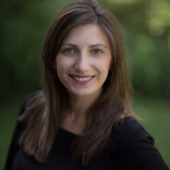
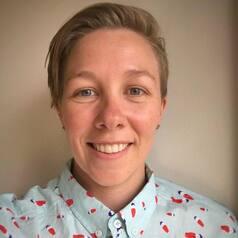
Whitney Monaghan
Lecturer in Communications and Media Studies, Monash University
Dr. Whitney Monaghan is a Lecturer in Communications and Media Studies at Monash University. Her background is in screen, media and cultural studies and her research examines the representation of gender, queer and youth identities, digital culture, and new forms of screen media. She is the author of Queer Girls, Temporality and Screen Media: Not ‘Just a Phase’ (Palgrave Macmillan, 2016) and co-author of Queer Theory Now: From Foundations to Futures (Macmillan International Higher Education, 2019).
Less ![]()
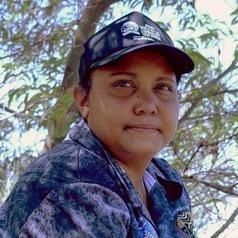
Whitney Rassip
Girringun Aboriginal Corporation Indigenous Protected Areas Coordinator and Acting Executive Officer, Indigenous Knowledge
Less ![]()
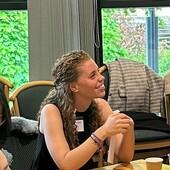
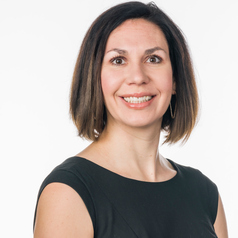
Whitney Lucas Molitor
Associate Professor and Program Director, Occupational Therapy Department, University of South Dakota
Whitney Lucas Molitor, PhD, OTD, OTR/L, BCG serves as Associate Professor and Program Director for the Occupational Therapy Department at the University of South Dakota. Dr. Lucas Molitor’s teaching responsibilities are in the areas of adult physical rehabilitation assessment and intervention, occupational performance for adults and older adults, and community-based practice. Her research interests include health promotion, population health, cultural implications on occupational performance, and interprofessional education.
Less ![]()
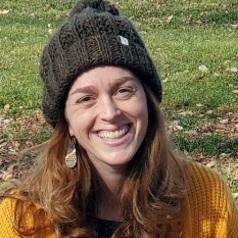
Wieteke Holthuijzen
Ph.D. Candidate in Ecology and Evolutionary Biology, University of Tennessee
I am a PhD student at the University of Tennessee in the Department of Ecology and Evolutionary Biology. I collaborate with the U.S. Fish and Wildlife Service and the non-profit organization Island Conservation to study invasive house mice and monitor ecosystem response to mice. I also work as a Biology Content Creator at Khan Academy.
For nearly a decade, I have studied the flora and fauna of Kuaihelani and actively participated in the restoration of this unique atoll ecosystem. From conducting albatross demography studies to cultivating highly endangered species to running Bayesian mixing models, I have a wide variety of knowledge and experience regarding island conservation biology and restoration ecology. Both my MSc and PhD are focused on disentangling the complex connections among organisms in island food webs to better understand the impacts of invasive species.
Less ![]()
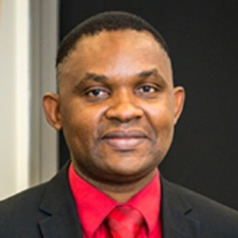
Wil Ngwa
Associate Professor of Radiation Oncology and Molecular Radiation Sciences, Johns Hopkins University
Dr Wil Ngwa is Director of the Global Health Catalyst, a professor of Global Health and Radiation Oncology, and a distinguished professor of Public Health. He is a chair of the Lancet Oncology Commission for sub-Saharan Africa and one of the leaders of the Cancer Moonshot Lancet Oncology Commission. He is a Rutgers Presidential Faculty Scholar and has held visiting professorships at the Universities of Heidelberg Germany and University of Pennsylvania. He co-directs the Africa-Oxford-Harvard-Hopkins (AfrOX-H2) Clinical Trials network. He is co-founder of the Global Oncology University, with an award-winning collaborative education platform that offers everyone access to the same world class education and training available at the world’s best institutions. Dr Ngwa currently serves as an Advisor for the USA government on Global Health. He completed his undergraduate studies at the University of Buea, Cameroon; his master's and doctoral training at the University of Leipzig Germany, and clinical training at MD Anderson Cancer Center and Harvard Medical School.
Less ![]()
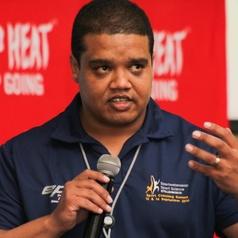
Wilbur Kraak
Professor, Department of Sport, Recreation and Exercise Science, University of the Western Cape
Wilbur Kraak's extensive body of research is centred around coaching and performance analysis, with a primary focus on the sport of rugby. With an impressive portfolio, he has co-authored and published approximately 40 research articles in both international and local peer-reviewed academic journals, contributing significantly to the academic discourse in the field. In addition to his scholarly pursuits, Wilbur Kraak is an accomplished rugby coach. His coaching credentials include attaining a coveted World Rugby Level 3 certification, showcasing his in-depth knowledge and expertise in rugby coaching methodologies. Moreover, he has recently completed the Elite Coaches Program, an exclusive initiative by the South African Rugby Union designed for coaches earmarked for higher honours in rugby in South Africa.
Less ![]()
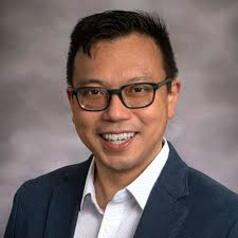
Wilbur Lam
Chief Innovation Officer, Children’s Healthcare of Atlanta Pediatric Technology Center; Professor of Biomedical Engineering, Georgia Institute of Technology
Dr. Wilbur Lam received his B.A. from Rice University in 1995, his M.D. from the Baylor College of Medicine in 1999 and his Ph.D. from the University of California,San Francisco/University of California, Berkeley Joint Graduate Group in Bioengineering in 2008. He completed his Residency in Pediatrics from UCSF in 2002 and was a Postdoctoral Fellow at UC Berkeley from 2008-2010. Dr. Lam's research involves integrating microtechnology ,development, experimental hematology and oncology and clinical medicine. His interdisciplinary laboratory, comprising clinicians, engineers, and biologists, is dedicated to applying and developing micro/nanotechnologies to study, diagnose, and treat blood disorders, cancer, and childhood diseases. This unique "basement to bench to bedside" approach to biomedical research is enabled by our lab's dual locations at the Emory University School of Medicine and the Georgia Institute of Technology and our affiliations with the Children's Healthcare of Atlanta hospitals.
Less ![]()
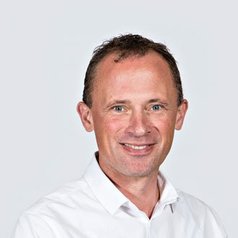
Wilfred Dolfsma
Professor of Innovation and Entrepreneurship, Associate Dean (Teaching), Director of the Glendonbrook Institute for Enterprise Development, Loughborough University
Wilfred is a Professor of Innovation and Entrepreneurship as well as Director of the Glendonbrook Institute for Enterprise Development. Wilfred has taught at bachelor, master, MBA, and PhD levels, in a number of different programmes and countries on the core themes of his academic research. His research focuses on collaboration for innovation, within and between organisations. Wilfred has consulted a number of large and small firms as well as government and NGO organisations.
Trained as both an economist and a philosopher, Wilfred focuses his research and teaching on collaboration within and between organisations to stimulate innovation and entrepreneurship. The approaches taken include social network analysis, (gift) exchange theory, and institutional theory. He has published award winning books and articles, in a range of international academic journals.
CURRENT RESEARCH AND COLLABORATIONS
Wilfred is involved in a number of projects with leading firms and academics across different continents. He is keen to collaborate with organisations that seek to improve their innovative performance, providing advise in exchange for research collaboration.
CURRENT PHD/RESEARCH SUPERVISIONS
Wilfred supervises PhD projects that focus on the antecedents for and effects of innovation for large as well as small firms, in particular the strategic implications for firms of their strategic choices where innovation is a key research focus.
INTERESTS AND ACTIVITIES
Wilfred is an editor-in-chief of the Review of Social Economy, associate editor of Innovation Management Policy and Practice, and a member of the editorial board of the Journal of Organisational Change Management.
Less ![]()
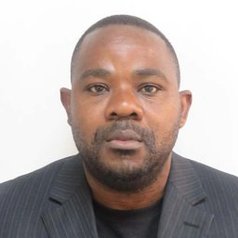
Wilfred Otang-Mbeng
Associate Professor in Botany, University of Mpumalanga
Prof Wilfred Otang Mbeng completed a Doctorate Degree in Botany from the University of Fort Hare in 2013, Master of Science and Bachelor of Science Degrees in Botany in 2005 and 2001; respectively, from the University of Buea in Cameroon and a PGDHE with Distinction from Rhodes University in 2020. He started his teaching career as a Tutor in Botany at the University of Fort Hare in 2010 and later as a Part-Time Lecturer at the same University in 2015. He was a Senior Lecturer of Indigenous Knowledge Systems (IKS) at North-West University, Mafikeng Campus in 2016 and in 2017, he was employed as a Senior Lecturer of Botany at the University of Mpumalanga (UMP). In December 2020, He was promoted to Associate Professorship at the University of Mpumalanga.
Prof Mbeng been engaged in research in:
• indigenous knowledge systems;
• ethnobotany and
• ethnopharmacology.
Less ![]()
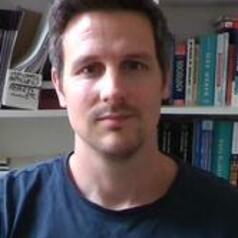
Will Atkinson
Professor in School of Sociology, Politics and International Studies, University of Bristol
Will Atkinson is a sociologist specialising in social class. He has researched almost all aspects of it using a wide variety of methods and authored or co-edited several books on the topic. These include Class Inequality in Austerity Britain (Palgrave Macmillan, 2012), Class in the New Millennium (Routledge, 2017), The Class Structure of Capitalist Societies (Routledge, 2 vols, 2020-22) and his introductory text, Class (Polity, 2015, 2nd ed 2024). Fascinated by the way in which class is woven through individual biographies, he has latterly used the life of Vincent van Gogh as a lens on this.
Less ![]()
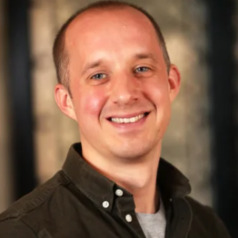
Will Baker
Senior Lecturer, School of Education, University of Bristol
My research is broadly within the sociology of education, but I have strongly interdisciplinary interests. A unifying theme in my research is understanding the causes and consequences of educational inequalities. There are three interconnected strands to my scholarship.
Firstly, I am pioneering research into the rise of food charity in schools. Against a backdrop of growing food insecurity in the UK, a growing number of schools are running their own food banks. I study how and why this is happening and what it tells us about education, inequality and the state (see Baker 2023; Baker and Bakopoulou 2022 and 2023). My research in this area has been covered by the BBC, The Independent and many of major news sources.
Secondly, along with Dr. Katherin Barg, I have developed a program of research that explores the interconnections between parenting, socio-economic background, and educational inequalities. We are also interested in exploring how family life and parenting has changed over time and differs between countries and cultures (see Barg and Baker 2021; Baker and Barg 2019). Finally, I have published widely on how young people develop educational aspirations, career goals and orient themselves to the future (see Moles et al. 2023; Baker 2020). I’m particularly interested in how these are connected to moral attitudes and values.
Methodologically, I draw on both qualitative and quantitative sources of data, including sources of secondary data such asthe Millennium Cohort Study. I make extensive use of interviews in much of my empirical work.
Less ![]()
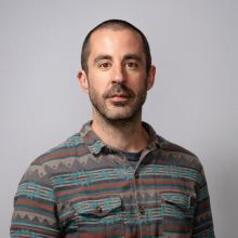
Will Brownlie
Senior Science Project Manager, UK Centre for Ecology & Hydrology
Dr Brownlie is the project manager of the GEF/UNEP-UKCEH Towards Sustainable Phosphorus Cycles in Lake Catchments (Up-Cycle) project. Up-Cycle will bring together the global lake management and sustainable phosphorus management communities, to develop and test a sustainable phosphorus management framework in Chile. Dr Brownlie was the project manager of the Our Phosphorus Future (OPF) project, consolidating global scientific evidence to raise awareness and support policy development related to phosphorus (funded by NERC, ESPP & UNEP). He is the lead editor of the OPF report and designed its multimedia (www.opfglobal.com). He is part of the project coordination unit of the GEF/UNEP-UKCEH International Nitrogen Management System (INMS) project; a science-policy support process leading global policymakers in sustainable nitrogen management. He is managing co-editor of the INMS International Nitrogen Assessment report and is developing the INMS Nitrogen Management Measures Database and its supporting guidance document.
Dr Brownlie provides expert advice and commentary on nutrient sustainability issues to the United Nations in various capacities. He has delivered keynote speeches at multiple international conferences and meetings, including COP27 and the 4th Sustainable Phosphorus Summit.
Less ![]()
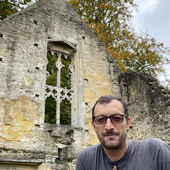
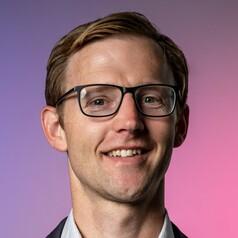
Will Harvey
Professor of Leadership and Education Director at the University of Bristol Business School, University of Bristol
Will Harvey is the inaugural Professor of Leadership and the Education Director at the University of Bristol Business School. He is an International Research Fellow at the Oxford University Centre for Corporate Reputation and Chair of the Board of Libraries Unlimited.
Less ![]()
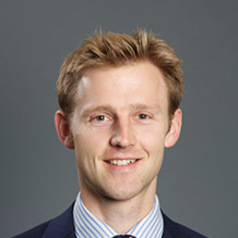
Will Harvey
Research interests
Skilled migration
Corporate reputation
Leadership
Talent management
Business and political elites
Social networks
Will’s research focuses on three areas. First, on the mobility, economic impact and social networks of highly skilled migrants. Specifically, he is focusing on the management of global talent in a range of economic sectors across different countries. Second, on how reputation and leadership is built and sustained within different types of institutions, with a particular focus on professional service firms. Third, on some of the methodological, fieldwork and practical challenges with interviewing business and political elites.
Less ![]()
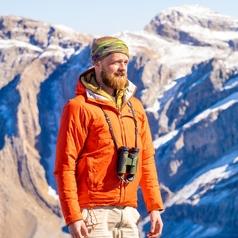
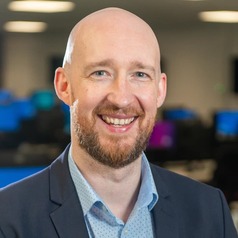
Will Jones
Director of Research and Lecturer in Data Science, Artificial Intelligence and Modelling (DAIM), University of Hull
Dr Jones is the Director of Research and Lecturer in the Centre of Excellence for Data Science, AI and Modelling Centre (DAIM) at the University of Hull. He specialises in AI and healthcare, with a specific focus on AI medical diagnostics, and teaches these topics on an MSc in Data Science and Artificial Intelligence. Dr Jones was previously an Senior NHS Scientist and NIHR Manager specialising in evidence generation for novel medical diagnostics. Dr Jones has a PhD in Neuroscience, with a background in philosophy.
Less ![]()
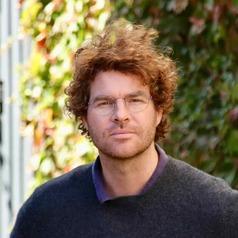
Will McCallum
PhD Candidate - School of Communication and Creative Arts, Deakin University
Will McCallum is Naarm/Melbourne-based documentary producer and director that has spent much of his career producing video from a base in China and then Hong Kong. He produced and directed the series - Pioneers: ASEAN Women of 2018 for the Australian Department of Foreign Affairs and Trade, which won the 2018 Asia Public Affairs Awards. He studied politics and Chinese at the University of Melbourne, and then earned a Masters degree in journalism from the University of Hong Kong. He is now in the final year of a PhD at the School of Communication and Creative Arts at Deakin University. Waŋgany Mala is his first feature-length documentary.
Less ![]()
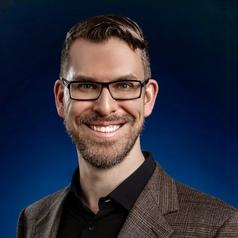
Will Thomas
Assistant Professor of Business Law, University of Michigan
Will Thomas is an Assistant Professor of Business Law at the Stephen M. Ross School of Business at the University of Michigan, and an expert on corporate and white-collar crime. He earned his both his JD and Phd in philosophy from the University of Michigan, and his BA from Columbia University.
Less ![]()
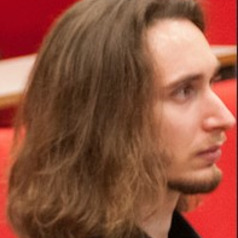
Will Visconti
Teaching staff, Art History, University of Sydney
Will Visconti's teaching and research span French Studies, Italian Studies, History, Art History, Fashion, Gender & Sexuality, and Cultural Studies. His first book, "Beyond the Moulin Rouge: The Life & Legacy of La Goulue" (2022) was published by the University of Virginia Press. He is currently working on the four-volume "Comedy, Humour, and Laughter: A Documentary History, 1800-1920" with Prof. Matthew Kaiser (UC Merced).
Less ![]()
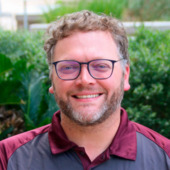
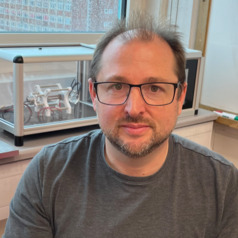
William Bertsche
Lecturer in Particle Physics, Manchester University
I am a lecturer with the Accelerator Physics group of the University of Manchester School of Physics and Astronomy and the Cockcroft Institute. I currently work on plasma physics and accelerator topics associated with the study of fundamental properties of antimatter in the ALPHA experiment at CERN. I also conduct research on novel low energy sources for accelerators.
One of my research topics involves comparing matter and antimatter through precision measurements with trapped antihydrogen. The ALPHA experiment at CERN routinely synthesizes and traps antihydrogen atoms. With this unique source of pure antimatter systems, we are able to perform precise measurements of its proerties, from its spectral signature in various energies ranges to its behaviour in a gravitational field. This research is aimed at addressing the question of observed baryon asymmetry in the universe today: why is antimatter so much more rare than matter.
Less ![]()
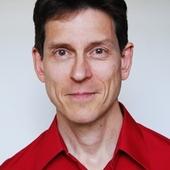
William Blazek
Professor Emeritus of American Literature and Modern Culture, Liverpool Hope University
Less ![]()
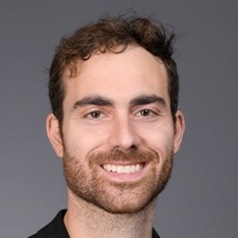
William Brady
Assistant Professor of Management and Organizations, Northwestern University
William Brady is an Assistant Professor of Management and Organizations. His research examines the dynamics of emotion at the social network level and their consequences for group behavior. His recent work studies how human psychology and technology-mediated social contexts interact to shape our emotions and intergroup attitudes. Combining tools of behavioral science and computational social science, his research aims to develop person-centered and design-centered interventions to improve our digital social interactions.
Professor Brady’s research has been published in leading journals such as PNAS, Science Advances, and Perspectives on Psychological Science. His work has also been featured in popular press outlets, including The New York Times, BBC, Wired, and The Wall Street Journal. In recognition of his contributions, he has been selected for the SAGE Emerging Scholar award.
Professor Brady earned his BA in Psychology and Philosophy, with distinction, from UNC-Chapel Hill, his Ph.D. in Social Psychology at New York University, and was awarded a postdoctoral fellowship from the National Science Foundation where he worked at Yale University.
Less ![]()
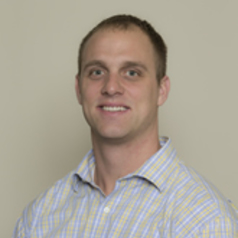
William Brink
After obtaining an undergraduate degree from Appalachian State University in Boone, NC and then a masters degree from the University of North Carolina Wilmington, Dr. William Brink, CPA, CFP began his career in public accounting working for McGladrey in Wilmington, NC. These years of professional experience would prove to be helpful as Dr. Brink attended the University of South Carolina for his doctoral degree in Accountancy. Today, Dr. Brink lives in Oxford Ohio and is an Assistant Professor of Accountancy at Miami University.
Less ![]()
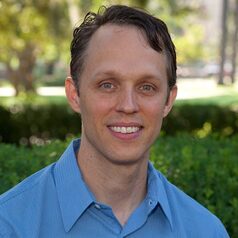
William Butler
Associate Professor of Urban and Regional Planning, Florida State University
My teaching and research are primarily in the field of collaborative environmental planning and management. I teach courses in environmental planning, food systems planning, collaborative governance, and planning theory. My research explores how to enhance social-ecological resilience of human-natural systems through collaborative governance. In the realm of natural resources, I have focused on how to engage in collaborative planning and management at multiple spatial scales and levels of governance to enhance social-ecological resilience through ecological restoration. Since my arrival in Florida, I have been examining planning responses to climate adaptation in the face of sea level rise. Finally, I seek to identify effective ways to navigate transitions toward more locally oriented food systems and to explore how such systems contribute to community resilience.
Less ![]()
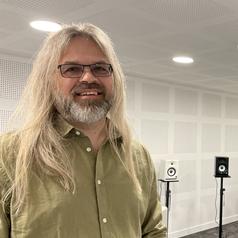
William Campbell
Deputy Head of School, leading Music and Music Technology, Anglia Ruskin University
Dr Campbell holds a first-class BSc (Hons) degree in Audio and Music Technology since 2008 and a PhD in 'The Effect of Dynamic Range Compression on the Quality and Loudness of Commercial Music' since 2019. His research has an international profile, with conference presentations and published journal articles.
Dr Campbell began his career as a touring live sound engineer. He currently manages the Music and Music Technology department at ARU and freelances as a music engineer, producer, and post-production filmmaker. He is also a certified Wwise instructor, teaching sound design and music implementation for games.
Dr Campbell is a Fellow of the Higher Education Academy, a Member of the Music Producers Guild, and a Member of the Audio Engineering Society.
His research interests include Dynamic Range Compression, Psychoacoustics, Noise-related Fatigue, Technology, and Pro Audio. He has published several articles, including "Listener preferences for alternative dynamic-range-compressed audio configurations" in the Journal of the Audio Engineering Society in 2017.
Less ![]()
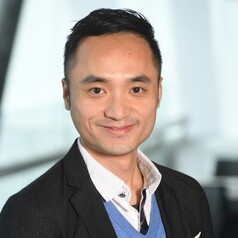
William Cheung
Senior Lecturer, Business School, University of Auckland, Waipapa Taumata Rau
Dr William K.S. Cheung is a Senior Lecturer in Property at the University of Auckland Business School. He obtained his PhD from The University of Hong Kong (HKU). His research primarily focuses on property markets, including understanding the roles governments and institutions can play in shaping sustainable housing markets. To complete his research agenda and to understand the role of urban real estate market dynamics in the context of the broader economy, he has adopted a uniquely transdisciplinary approach. The significant funding from various research grants that he garnered since his arrival at the University has assured his initial success in adopting transdisciplinary approaches to understanding the role of urban property market dynamics in the context of sustainability and well-being. The roles that he is taking in the National Science Challenges (BBHTC) and other international contestable funded-research projects empower him to contribute to government policy discourses on housing policies. Prior to his PhD study, Dr Cheung served as an economist at the HKSAR Government and worked as an assistant manager in the Asia Pacific Research Department at CBRE, a globally renowned real estate company. He is a chartered surveyor at the Royal Institution of Chartered Surveyors (MRICS) and a full member of the Property Institute of New Zealand (PINZ). Having been a U.S. Fulbright scholar, Australian Endeavour fellow, Ronald Coase Institute alumnus, and having received other international accolades in recognition of his outstanding scholarship, he has been invited to be the journal editor, reviewer for international grant proposals, organise conferences, deliver invited lectures, and serve as journal editorial board member.
Less ![]()
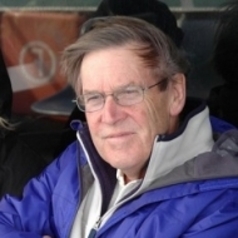
William Clark2
Research Professor of Geography, University of California, Los Angeles
William Clark is Research Professor of Geography at UCLA and an active affiliate of the California Population Center. He was born in New Zealand and earned BA and MA degrees from the University of New Zealand and a PhD in Geography from the University of Illinois. He was a fellow at the Netherlands Institute for Advanced Studies in the Humanities and Social Sciences in 1993, and held a Guggenheim Fellowship in 1994-95. In 1994 he was awarded a D.Sc. by the University of Auckland, New Zealand.
He is an Honorary Fellow of the Royal Society of New Zealand and in 2003 he was inducted into the American Academy of Arts and Sciences. In 2005 he was elected to the US National Academy of Sciences and in that year he also received the Decade of Behavior Research Award for research that influences public policy. In the past ten years he has lectured and taught in Europe, New Zealand and Canada and in 2011 held an UK Economic and Social Research Council Fellowship at the University of St. Andrews, Scotland. He was a Benjamin Meaker Research Fellow, at Bristol University, United Kingdom in 2014. At the Association of American Geographers meetings in 2018 he was awarded the Lifetime Achievement Award.
His research focuses on mobility, migration and housing choice and housing outcomes. Each of these areas continues his long term interest in demographic change in large urban areas. He has published extensively on models of residential mobility and the sorting processes that bring about residential segregation in the urban mosaic His research is focused on how demographic changes and specifically the spatial outcomes of both internal and international population migration change neighborhoods. The edited volume, with David Clapham and Ken Gibb (The Sage Handbook of Housing, 2012) brings together work on residential change, housing choice, housing markets and policy issues on the future of housing. A forthcoming book reviews recent research in Housing Studies.
His studies of immigration and its impacts both on places and on the immigrants themselves are set out in two books, The California Cauldron: Immigration and the Fortunes of Local Communities and Immigrants and the American Dream: Remaking the Middle Class. The California Cauldron focuses on the impact of immigration on California, and Immigrants and the American Dream examines how immigrants have transformed themselves as their life courses intersect with the American mainstream. Both examine the way in which immigrants change local communities and how they succeed in their life course trajectories.
Less ![]()
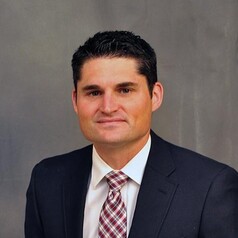
William Cornwell
Associate Professor of Cardiology, University of Colorado Anschutz Medical Campus
My clinical interests include caring for individuals across the entire spectrum of disease, from professional athletes with cardiovascular-related issues, to patients with mild ambulatory heart failure, and those with end-stage, advanced heart failure requiring mechanical pumps (left ventricular assist devices, "LVADs") and heart transplants. I treat patients with a variety of types of cardiomyopathies, and patients suffering from heart failure with preserved ejection fraction. I have a strong interest in the athletic heart and provide care for all types of athletes, including professional athletes at all levels, tactical/occupational athletes (police, firefighters, paramedics, military) and recreational athletes. In addition, many individuals living in Colorado participate in a variety of sports in the mountains, and experience symptoms related to hypoxia (low oxygen) at higher altitudes. I work closely with Wilderness and Environmental Medicine, as well as the Altitude Research Center, to care for individuals who suffer from heart and lung-related symptoms related to altitude/environment. Finally, I also provide guidance/counseling to individuals on best practices for heart screening prior to participation in sports, whether it is pre-season assessments, or sedentary individuals with cardiac risk factors, who are interested in beginning an exercise program. I also serve as the director of cardiac rehabilitation at the University of Colorado Anschutz Medical Campus and facilitate referrals to our rehab center.
My research interests include exercise physiology of patients across the spectrum of health, ranging from elite/professional athletes, to individuals mild ambulatory heart failure, and those suffering from severe, end-stage heart failure who require mechanical pumps (left ventricular assist devices, "LVADs"). In all of these populations, we have protocols to study cardiopulmonary function at rest and during exercise, as well as cerebrovascular physiology and vascular biology, and keep a bloodbank repository to understand how different disease processes impact the body on a cellular and subcellular level. My current research is supported by the NIH/NHLBI and industry.
Less ![]()
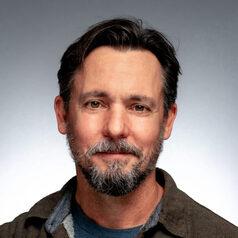
William Donaruma
Professor of the Practice in Filmmaking, University of Notre Dame
By day, William (a.k.a. Bill) is currently a professor of the practice in filmmaking at the University of Notre Dame and also serves as creative director for the Office of Digital Learning. Beginning as a grip and a stuntman at Universal Studios, he moved into production management, camera, editing, and now teaching. He continues to make narrative and documentary films primarily using the RED cameras in his arsenal.
During his off time he seeks action, energy, and purpose through military-led endurance events, which keeps him ready for production field work of any kind. Keeping him in line are his wife, four kids, and golden retriever.
Less ![]()
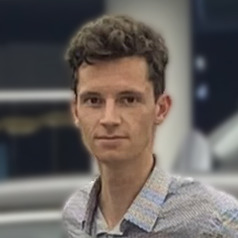
William Emond
Doctorant sur le thème de la réduction du mal des transports en voiture, Université de Technologie de Belfort-Montbéliard
Doctorant sur le thème de la réduction du mal des transports en voiture.
Thèse en cours, élaborée au centre de R&D de Mercedes-Benz (Sindelfingen, Allemagne) et tutorée au laboratoire ELLIADD-ERCOS de l'UTBM (Montbéliard, France).
Ingénieur en mécanique et ergonomie de formation, j'ai orienté mon parcours professionnel dans l'ingénierie automobile au travers de mon cursus "Architecture véhicule et produits de mobilité" ainsi qu'au travers d'expériences professionnelles au sein de constructeurs automobiles.
Less ![]()
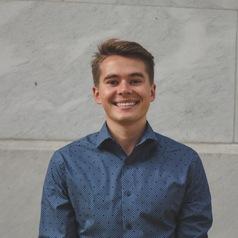
William Fajzel
PhD student, Earth and Planetary Science, McGill University
William is a PhD student in Earth and Planetary Sciences at McGill University, Montreal. His research is interdisciplinary, focusing on better understanding and quantifying how the human system works. His background is in Earth system science and economics.
Less ![]()
- Market Data



















